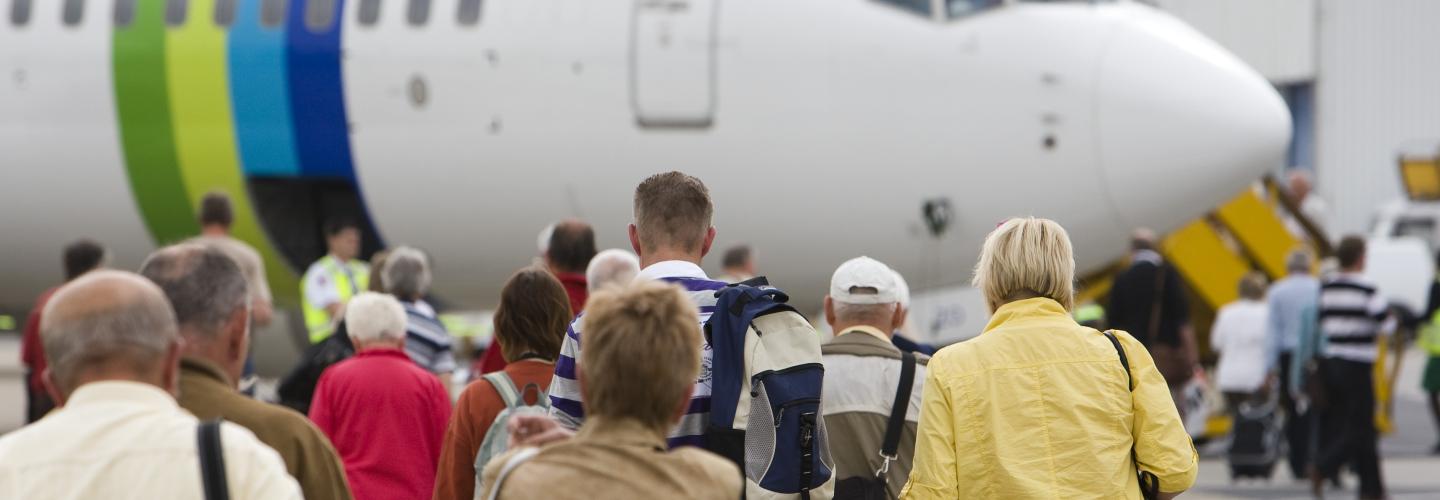Residence in the Netherlands
Everyone from outside the EU who wants to stay in the Netherlands for a longer period must apply for it. They can do so based on labour, study or asylum, for example. Someone who has been staying in the Netherlands for a longer period can apply for extension. The IND considers all these applications carefully and then grants or rejects them. The IND may also decide to withdraw someone’s right of residence. And applicants can object or appeal against this. All these situations can lead to a new or different residence status and hence a different residence code.
This is how rights of residence work
After all, a residence status comes with a so-called right of residence or residence code. This code is determined by means of all ongoing processes and decisions the IND has taken. For example, there is code 26: a temporary asylum residence permit. Or code 25: a regular permanent residence permit. And there is also code 98: (or no more) right of residence.
Code 98: if nothing else applies
Code 98 is not just given to anyone. The system in which the IND processes procedures related to the right of residence has been designed in such a way that it determines automatically what someone’s (strongest) right of residence is. This is done based on all granted, ongoing and completed residence processes. If no right of residence follows from any of these processes, it means that only ‘no (or no more) right of residence’ remains. In that case, someone will be given code 98.
But when exactly does a person have no (or no more) right of residence in the Netherlands? This can happen, for example, if someone:
- has submitted a residence application on which no decision has been taken yet;
- is not staying in the Netherlands legally because the residence permit has been withdrawn;
- is not staying in the Netherlands legally because they have not applied for extension.
Legal residence in the Netherlands
Someone’s residence code is registered in the Central Shared Database with Basic Information on Applicants (in Dutch: Basisvoorziening Vreemdelingen or BVV). Via the personal records database, the BVV is connected to systems of local councils and other implementing organisations. For example the Tax and Customs Administration. Based on the entered code, these organisations determine to which provisions someone is entitled. Are they allowed to work in the Netherlands? Are they entitled to allowances? Or benefits? Without right of residence in the Netherlands, there is no right to provisions.
Benefit Entitlement (Residence Status) Act
The right to provisions has to do with the Benefit Entitlement (Residence Status) Act (in Dutch: Koppelingswet), which has been in force in the Netherlands since 1 July 1998. This act determines that someone is only eligible for government provisions and benefits when they are staying legally in the Netherlands. So, this means someone must have a valid right of residence.
The Benefit Entitlement (Residence Status) Act has two aims:
- preventing people from receiving government provisions wrongfully, which would make it easier for them to stay illegally in the Netherlands; and
- preventing people from building up such a strong legal position that it becomes difficult to remove them despite their illegal stay in the Netherlands.
Various organisations use the codes
Is someone allowed to work in the Netherlands? Are they entitled to allowances? Or benefits? Without right of residence in the Netherlands, there are no rights to provisions. Via code 98 of the IND, other organisations can see whether someone does not have legal residence.
Annually, around 150,000 times code 98
Annually, the IND issues code 98 around 150,000 times. This has no consequences for most people. For example, they return to their country of origin after a job or study programme and lose their right of residence. It also applies to people who want to come to the Netherlands and apply for a residence permit in advance. Until the moment they enter, they are registered under code 98 with the IND. In a limited number of cases, it concerns people who are already or still in the Netherlands. It may be that their permit has been withdrawn or that they have not or not yet submitted a new application. Only a few isolated cases get code 98 wrongfully.
What if the code is incorrect?
An incorrect residence code can have enormous consequences. That is why we work as carefully as possible. If a residence code turns out to be incorrect, the IND changes it as quickly as possible. After that, the adjusted code will automatically be registered correctly in the systems of local councils and other implementing organisations (via the BVV and the Personal Records Database).
In case of suspicion that the IND is using an incorrect code, it is possible to call us and ask for adjustment. Organisations such as local councils and the Tax and Customs Administration can also contact us in case of doubt about a residence code.
Contact the IND
You can call the IND Monday to Friday from 9.00 to 17.00 on 088 043 04 30.


